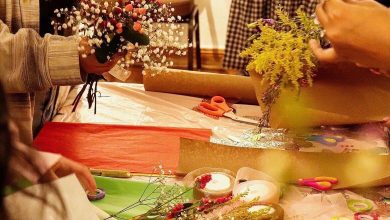UCLA Center for the Study of Women: Research unit offers opportunities to study gender and sexuality
 Hidden down a dark hallway in the Public Affairs building, through a door to seemingly nowhere, lies the university’s epicenter of research on gender and sexuality. The Center for the Study of Women (CSW), an on-campus organized research unit, has no curricular function as it exists to foster an intellectual community amongst students, faculty and researchers at UCLA and beyond.
Hidden down a dark hallway in the Public Affairs building, through a door to seemingly nowhere, lies the university’s epicenter of research on gender and sexuality. The Center for the Study of Women (CSW), an on-campus organized research unit, has no curricular function as it exists to foster an intellectual community amongst students, faculty and researchers at UCLA and beyond.
History and Research Mission Areas
Established in 1984 by five professors at UCLA, CSW was the University of California’s first organized research unit (ORU) to focus on gender and sexuality. Originally connected to the Women’s Studies Program, the two split so that Women’s Studies could become a department (made official in 2008) and CSW could turn its focus to research only.
The center serves the entire campus and works with students and faculty members regardless of their home department. “We are in touch with and engaged with faculty doing research that has to do with women, gender and sexuality in south campus, all the professional schools and the college,” said Kathleen McHugh, the center’s director. “We have a very broad reach.”
By engaging with scholars across the campus, CSW brings them together and helps them bridge their research and findings. McHugh pointed out that with such a large campus, it is easy for those who would benefit from communication about their projects to never actually meet each other. By focusing on their mission areas of women, gender and sexuality rather than the departments of those involved, the center is able to close these gaps and create new opportunities for all those involved.
Support for Faculty
The center supports faculty members by offering three different levels of grant money. The junior faculty research development grants help those who are pre-tenure and might be working to gain attention and resources on campus. By providing that early support, CSW can help younger faculty members network and gain publicity among the intellectual community.
The faculty research seed grants are designed to help the development of new projects searching for funding, while the faculty research completion grants provide financial aid to those who are nearing the end of their research and might be published in CSW publications.
Past funded faculty projects include “Investigating Tibetan Women’s Pregnancy Care Preferences in Rural China: A Collaborative Pilot Study to Promote Safe Motherhood” and “She’s One of Our Own: Incorporating Black and Latina Lesbians into U.S. Women’s History.”
Opportunities for Graduate Students
Committed to supporting graduate students, CSW offers numerous awards, grants and fellowships to those pursuing higher degrees at UCLA. In addition, the center organizes a number of professionalization workshops designed to help graduate students succeed after graduation. These include workshops on crafting effective CVs and engaging in successful interviews.
Meanwhile, one of the cornerstones of the CSW is the annual graduate student research conference, ‘Thinking Gender.’ At the 22nd annual conference on Feb. 3, 2012, 84 participants came from around the world to present their research in what Julie Childers, CSW’s assistant director, called a “comfortable” setting. “It’s terrifying to present your work for the very first time,” said Childers. “So the moderators are very understanding.” Research at this year’s conference covered everything from social networking and technology to the conditions of women and mothers in jails.
Because CSW is aimed at graduate students, the center also does its best to help them connect with speakers brought to campus through ‘brown bag lunches’ and other networking opportunities. And these possibilities can make the university more appealing to those making a decision about where to further their education. Dayo Spencer-Walters, a graduate student in the School of Public Health, said she knew she wanted to do research related to gender and her knowledge of CSW led her to come to UCLA. She worked at the center throughout her time as a student, and she presented at 2011’s ‘Thinking Gender’ conference on her research entitled “Intersections of Domestic Violence and Food Insecurity in California.”
Annie Fehrenbacher, also a graduate student from the School of Public Health, presented at this year’s conference with her research titled “The Evolution of a Gendered Politics of Trauma: Challenging the Depiction of Rape as ‘A Fate Worse than Death.” She expressed gratitude for the CSW and the support it provides for those pursuing topics related to gender and feminism. Though she never worked for the center, she did receive grant money to attend conferences around the country that she said would have otherwise been impossible to attend.
Resources for Undergraduate Students
Though the center’s focus is on faculty members and graduate students, Childers said that CSW would like to reach as many undergraduate students as possible. There are three annual awards for undergraduate students offered through the research unit, including the ‘Renaissance Award,’ given to a woman who has returned to college after a prolonged absence due to family or career obligations, and the ‘Constance Coiner Award,’ given to an upper-division student who is dedicated to working-class and feminist issues.
Travel grants are also available to those hoping to attend or present at conferences related to the centers mission areas. In addition, CSW employs many undergraduate students, most of whom receive work-study.
Speakers and the Local Community
In order to further its goal of engaging an intellectual community, CSW offers numerous free speaker and film events throughout the year. On May 15, Kathryn Stockton, author of “The Queer Child, or Growing Sideways in the Twentieth Century,” will speak from 4 to 6 pm in Royce 314. Past speakers include Gayatri Spivak, known for her work on global and postcolonial feminism, and Patricia Hill Collins, author of “Black Feminist Thought: Knowledge, Consciousness and the Politics of Empowerment.” Most events are free and open to the public, and the video recordings of many of them become available online.
CSW is also committed to forging relationships with those outside of the university, and is currently working with the June L. Mazer Lesbian Archives to process and digitize their collections. The center brokered a relationship between the archives and the UCLA Library System, and the complete archives will ultimately be available online and at Special Collections in the Young Research Library. The main five collections are already available for the community to enjoy.
Ultimately, CSW prides itself on creating a space in which the intellectual community can engage in discussions about women, gender and sexuality. And McHugh insisted that it is important such a center exist because it has the unique ability to encourage research on these topics across departments, disciplines and communities.
This article originally ran in the Winter 2012 issue of Fem.




